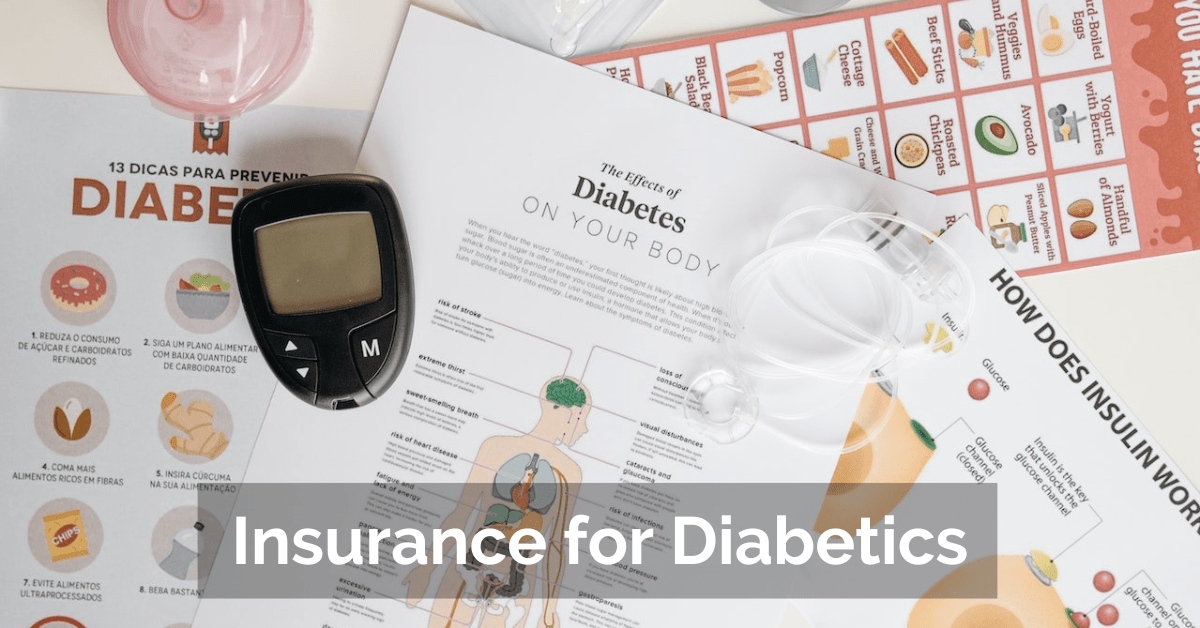
Introduction
Finding the right health insurance can be a daunting task for anyone, but it becomes even more difficult when you have a chronic condition like diabetes. Health insurance is important for people with diabetes because it covers the high medical costs associated with the disease, including regular checkups, medications, and emergency treatments. But what should diabetics consider when choosing health insurance? Let’s dive into this comprehensive guide.
Understanding Diabetes
- Types of Diabetes: Type 1, Type 2, and Gestational
Diabetes is a condition that affects how your body processes blood sugar (glucose). There are three main types: - Type 1 diabetes: An autoimmune condition where the body attacks the cells that produce insulin.
Type 2 diabetes: A condition that affects the way the body processes blood sugar, often linked to lifestyle and genetics.
Gestational diabetes: A form of diabetes that occurs during pregnancy.
- Common Complications Associated with Diabetes
If not managed properly, diabetes can lead to serious health complications, such as heart disease, kidney failure, nerve damage, and vision problems. This makes regular medical care and monitoring important.
Why Health Insurance is Crucial for Diabetics
- High Medical Costs
Diabetics often face high medical costs due to the need for regular medications, monitoring equipment, and frequent doctor visits. Health insurance can help reduce these costs.
- Regular Medical Check-ups and Medication
Effectively managing diabetes requires regular checkups and ongoing medication, both of which can be expensive without insurance.
- Emergency Situations
Unexpected health crises related to diabetes, such as diabetic ketoacidosis or severe hypoglycemia, require immediate medical attention, which can be expensive.
Factors to Consider When Choosing Health Insurance for Diabetics
- Coverage for Pre-existing Conditions
Make sure the plan covers diabetes as a pre-existing condition without exorbitant premiums or waiting periods.
- Prescription Drug Coverage
Check if insurance covers the specific medications you need, as diabetes medications can be expensive.
- Specialist Visits and Hospitalization
Look for plans that cover visits to specialists such as endocrinologists and hospital stays.
- Regular Screening and Preventive Care
Routine screening and preventive care are critical to managing diabetes and preventing complications.
Types of Health Insurance Plans
- Individual Health Insurance
These plans are purchased independently and can be tailored to your specific needs, although they can be more expensive.
- Employer-Sponsored Health Insurance
Manne employers offer health insurance as part of tahir benefits package, waftin at arduqd cost to employees.
- Government-Sponsored Programs (Medicare, Medicaid)
Programs like Medicare and Medicaid provide coverage options for people who qualify, including many people with diabetes.
Best Health Insurance Providers for Diabetics
- Private Insurers Specializing in Diabetes Care
Some private insurers offer special plans with comprehensive coverage options for diabetics.
- Insurers with Comprehensive Coverage Options
Look for insurers that provide comprehensive coverage, including medications, specialist visits, and preventive care.
Tips for Finding Affordable Health Insurance
- Comparison Shopping
Compare different insurance plans to find the best coverage at the most affordable price.
- Utilizing Online Tools and Resources
Use online resources to compare plans, check coverage options and read reviews from other diabetes patients.
- Seeking Professional Advice
Consider consulting an insurance broker or healthcare advisor to find the best plan for your needs.
- Understanding Health Insurance Terms
Premiums, Deductibles, Co-pays, and Out-of-Pocket Maximums
Understanding these terms will help you make informed decisions about your insurance plan and manage your healthcare budget effectively.
Navigating the Application Process
- Required Documentation
Be prepared with medical records, medication list and other necessary documents.
- How to Disclose Diabetes Status
Disclose your diabetes status honestly to ensure you get the right coverage and avoid potential problems.
- Common Mistakes to Avoid
Avoid common mistakes such as not fully understanding the policy or failing to disclose necessary information.
Managing Health Insurance Costs
- Budgeting for Medical Expenses
Create a budget that includes your insurance premiums, co-pays and other medical expenses.
- Using Health Savings Accounts (HSAs) and Flexible Spending Accounts (FSAs)
These accounts allow you to save tax-free money for medical expenses, helping you manage expenses effectively.
The Role of Lifestyle in Managing Diabetes and Insurance Costs
- Importance of Diet and Exercise
A healthy lifestyle can help manage diabetes and reduce medical costs.
- Monitoring Blood Sugar Levels
Regular monitoring can prevent complications and reduce the need for expensive emergency care.
Legal Protections for Diabetics
- Affordable Care Act (ACA)
The ACA protects people with pre-existing conditions, including diabetes, by making sure they can get coverage.
- Americans with Disabilities Act (ADA)
The ADA protects people with diabetes from discrimination in the workplace and other areas.
Case Studies: Success Stories from Diabetics
- Real-life Experiences
Learn from the experiences of other diabetics who have successfully navigated the health insurance landscape.
- Lessons Learned
Get insights and tips from those who have managed to find the best insurance coverage for their needs.
Future Trends in Health Insurance for Diabetics
- Technological Advancements
Advances in technology are making access to diabetes treatment and healthcare easier.
- Policy changes
Be aware of policy changes that may affect your health insurance options and coverage.
Conclusion
Getting the right health insurance is crucial to managing diabetes effectively. By understanding your options and what to look for in a plan, you can get coverage that meets your needs and helps you stay healthy. Remember to compare plans, get professional advice, and use all available resources to make an informed decision.
